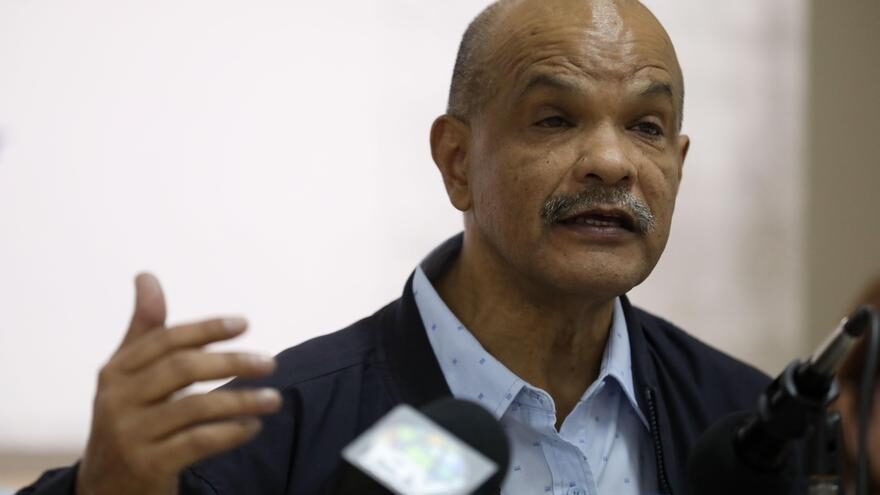Carabobo — The harsh sunlight flickers off the metal bars, casting long shadows across the cell floors. In the sweltering heat of Carabobo State’s prison, hundreds of prisoners, including teenagers detained after the July 28 election protests, wait for their next meal. It’s not just a physical hunger that gnaws at them—it’s the hunger for dignity, for recognition of their humanity. But inside these walls, even that seems scarce.
The Observatorio Venezolano de Prisiones (OVP), a human rights organization, has raised a pressing concern: prisoners in this northern Venezuelan facility, alongside others across the nation, are barely being fed. It’s a grim reflection of the country’s broader crisis, and yet, these detainees are among the most vulnerable—out of sight, and far too often, out of mind.
The Reality Behind Bars: Failing System
The Venezuelan prison system has long struggled under the weight of economic collapse, political turmoil, and social unrest. But the nutritional deprivation in these prisons isn’t just a side effect of the country’s hardships; it’s a systemic failure, one that has pushed many incarcerated individuals to the brink.
According to Humberto Prado, director of the OVP, prisoners in Carabobo’s penitentiary and other facilities in the north are fed a meager diet that barely sustains life. “When families manage to see their loved ones, they often don’t recognize them,” Prado shared. “They are emaciated, their skin pale, their eyes hollow.” The Venezuelan government is failing to meet even the most basic needs of these individuals, depriving them of their fundamental rights.
“Dry Arepa and Water Twice a Day”: The Nutritional Crisis in Venezuelan Prisons
The daily diet reported by prisoners and their families is alarmingly insufficient. The typical meal consists of a thin, dry arepa—Venezuela’s traditional corn cake—sometimes accompanied by rice or beans, and, on rare occasions, a sliver of meat. Water is provided only twice a day. This diet lacks the vitamins, proteins, carbohydrates, and fats necessary to sustain a human body, especially one living under stressful, overcrowded conditions.
For these prisoners, survival is a daily battle. The OVP has received multiple reports of detainees suffering from constant stomach pains, diarrhea, and other gastrointestinal issues due to the poor quality of the food. Malnutrition is rampant, leading not only to physical degradation but also a loss of hope, a slow, painful erosion of the spirit.
Families Left Helpless: “They Don’t Recognize Their Loved Ones”
It’s difficult to overstate the emotional toll this crisis takes on the families of those incarcerated. Many of them have watched helplessly as their loved ones waste away, their once vibrant bodies reduced to shadows of their former selves. The emotional weight of this reality is often overlooked in policy discussions, but for those affected, it is an open wound that festers with each passing day.
“They’ve turned our boys into ghosts,” one mother tearfully explained, her voice cracking under the weight of her fear and grief. Her son, detained in the aftermath of the post-election protests, was once strong and full of life. Now, after months of inadequate food and harsh conditions, he is a stranger to her.
Post-Election Detentions: Fight for Justice Amid Oppression
This humanitarian crisis isn’t happening in a vacuum. It’s deeply tied to the country’s political landscape. Following the contested July 28 presidential elections, over 2,400 individuals were arrested during protests, with 1,767 of them still behind bars. These detainees, many of them young, are being held on charges ranging from terrorism to inciting hatred—charges that human rights organizations, like the OVP and Foro Penal, have called excessive and politically motivated.
The Plataforma Unitaria Democrática (PUD), Venezuela’s leading opposition group, has denounced these arrests as part of a broader crackdown on dissent. They argue that what’s happening inside Venezuela’s prisons is not just a humanitarian issue, but a clear violation of human rights—a method of punishing political opposition by starving it into submission.
Call for Justice: Family Appeals and the Fight for Dignity
The families of these prisoners are not standing idly by. On October 4, 2024, several of them, along with opposition leader Enrique Márquez, submitted a formal request to the Venezuelan Supreme Court (TSJ), demanding a review of the conditions and the legal charges faced by the detainees. They are calling for respect of the due process, emphasizing that many of these individuals have been imprisoned without a fair trial, their fate hanging in the balance.
But justice, like food, has been scarce in Venezuela. As the political elites continue to clash, it’s the prisoners—many of whom were simply in the wrong place at the wrong time—who suffer the consequences. Their hunger, both literal and metaphorical, is a silent protest against a system that has forgotten them.
Beyond the Bars: Why This Matters for Venezuela’s Future
This crisis isn’t just about the food—or the lack thereof. It’s about the future of Venezuela. These prisoners, many of them young, are the country’s potential doctors, engineers, teachers, and leaders. Starving them of their humanity, their health, and their hope is to rob the nation of its future.
Human rights aren’t just theoretical concepts discussed in international courts—they’re lived experiences. They’re what allows a person to feel safe, to believe in the possibility of a better life. Without them, a society crumbles from within. As Venezuela continues to grapple with its political upheaval, it’s vital that these human rights, starting with the right to adequate nutrition and humane treatment, are upheld.
The Observatorio Venezolano de Prisiones continues to fight for these forgotten souls. But in the end, it will take more than NGOs and protests to change the tide. It will require a collective effort—from local authorities to international bodies—to demand accountability and justice. For without that, the prisoners of Venezuela, much like the country itself, will continue to wither in the dark.


